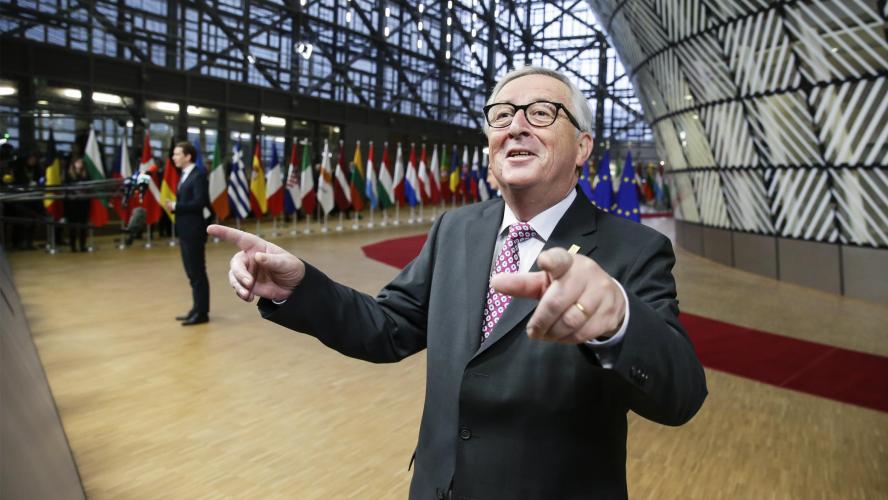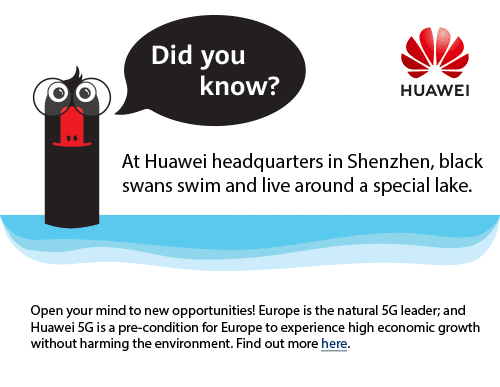BRUSSELS BEHIND THE SCENES
Weekly analysis and untold stories
With SAMUEL STOLTON
Other Brussels behind the scenes stories:
An Ideological War in Ol' Blighty
We'll miss you, Jean-Claude
They are stood resolute with exuberant smiles pasted across their faces - primed for the onset of the new 5-year term of the European Commission. These are the profiles of the incoming EU Commissioners, appearing for a photo at the European Parliament in Strasbourg earlier this week, ahead of taking up their seats on Sunday.
Amid this deluge of enthusiasm and almost aggressive buoyancy, one is prompted to contemplate over the story that the face of outgoing President Jean-Claude Juncker would today tell, as his term in office folds to a close.
The state of Europe following the social, economic and political vicissitudes of the past 5 years has left the union in a wind-beaten and bruised state. One of the symbolic tasks that now befalls the fresh-faced members of the Commission is to bandage the wounds in the corpus politicum of the European Union that have taken place under Juncker’s watch.
There is a tragically ironic parallelism here. As Juncker prepares to depart the theatre of European politics, he does so under an affliction of his own – having recently been hospitalised for stomach surgery. Concerns over his state of health had previously been raised at a NATO summit last year in which the Prime Ministers of North Macedonia and Portugal, Zoran Zaev and António Costa, had to physically support an unsteady Juncker as he made his way down a flight of stairs.
Sent out every Friday afternoon, BRUSSELS BEHIND THE SCENES brings the untold stories about the characters driving the policies affecting our lives. Analysis not found anywhere else, The Brussels Times' Samuel Stolton helps you make sense of what is happening in Brussels.
If you want to receive Brussels behind the scenes straight to your inbox every Friday, subscribe to the newsletter here.
Perhaps the turmoil of the past five years has taken its toll. The Luxembourger hasn’t had the most straightforward of terms – he’s had to contend with the aftermath of the Greek financial crisis which nearly crippled the euro currency, the migration emergency exposing divisions between East and West, the UK’s planned withdrawal from the EU, the rule of law being flouted in Poland and Hungary, and mutating global poles of geopolitical power – with the EU finding itself increasingly sandwiched between China and the US.
The election of US President Donald Trump brought new diplomatic challenges to Brussels, and the spate of terrorist attacks provoked fear in citizens, then there was the budding of new challenges as the climate emergency mobilized a mass of indomitable activists determined to chart Europe’s path to a more sustainable future.
This was to be the “last-chance Commission,” Juncker had said back in 2014, at his State of the Union address in the European Parliament in Strasbourg. "Either we will succeed in bringing our citizens closer to Europe, or we will fail," he told MEPs, alongside a pasty-faced and plump Frans Timmermans. Should this have been his objective – to a certain degree the Juncker Commission has indeed weathered a turbulent and serendipitous storm. Whether he has succeeded or not, is another question.
BRUSSELS BEHIND THE SCENES POWERED THIS WEEK BY
Over the past few months, for many in Brussels, Juncker has become an increasingly withdrawn figure – held back from the public limelight for fear of provoking frivolous reprisals in response to some of his more avant-garde of behaviours.
There was the time at the Riga Summit in 2015, when he welcomed the oft-derided illiberal autocrat Hungarian Prime Minister Viktor Orbán with a ‘hello dictator!’ and a hearty slap on the jowls. Or cast your minds back to the end of last year, when at a European Council summit, he decided to greet the EU’s deputy head of protocol Pernilla Sjölin with a vigorous ruffling of her hair –prompting Irish Prime Minister Leo Varadkar to describe the move as ‘probably ill-advised.’ At another Council summit this year, in front of cameras, a prostrate Jean-Claude was harangued by the then UK Prime Minister for his delineation of her as ‘nebulous’ in a tragic-comic theatrical display that managed to contract the sympathy of many in the UK.
Jean-Claude will be dearly missed. His unique brand of gaucherie and wit has made him one of the most effective agents in disarming the vitriol levelled at the EU emanating from right-wing populism. One particular episode which rings in the mind fondly is from July 2014, when he attended an EFDD (Europe of Freedom and Direct Democracy Group) hearing in the European Parliament, alongside Nigel Farage. The Euro-sceptic leader began to pursue an aggrieved lecture against Juncker – to which the latter responded by asking Farage on the microphone whether he had a cigarette available. Farage discharged a nourishing and sincere bout of laughter and the affair underlined Juncker’s unique ability to neutralize political hostility with the dexterity of an opportune comedic intervention.
Speaking before reporters at the final European Council summit of his Commission Presidency in October, Juncker’s voice splintered and a rare intrusion of sadness crept into his farewell speech. “I will remain proud until the end of my life...for having served Europe,” he said. “Merci,” he added, as his eyes glazed over and his body started to shake from an intense concoction of pathos and pride. In response, an emphatic applause rung out from the European Council press room.
While the profiles of the incoming Commissioners stare down into the camera-lens with an air of doggedness driven by the steely matriarchal tenacity of new commander Ursula von der Leyen, I will rue the absence of a Commission President who had led Europe with a heavy-handed and raw spirit of frankness and awkwardness - in essence, someone who has perhaps been human, all too human.
Sent out every Friday afternoon, BRUSSELS BEHIND THE SCENES brings the untold stories about the characters driving the policies affecting our lives. Analysis not found anywhere else, The Brussels Times' Samuel Stolton helps you make sense of what is happening in Brussels.
If you want to receive Brussels behind the scenes straight to your inbox every Friday, subscribe to the newsletter here.


